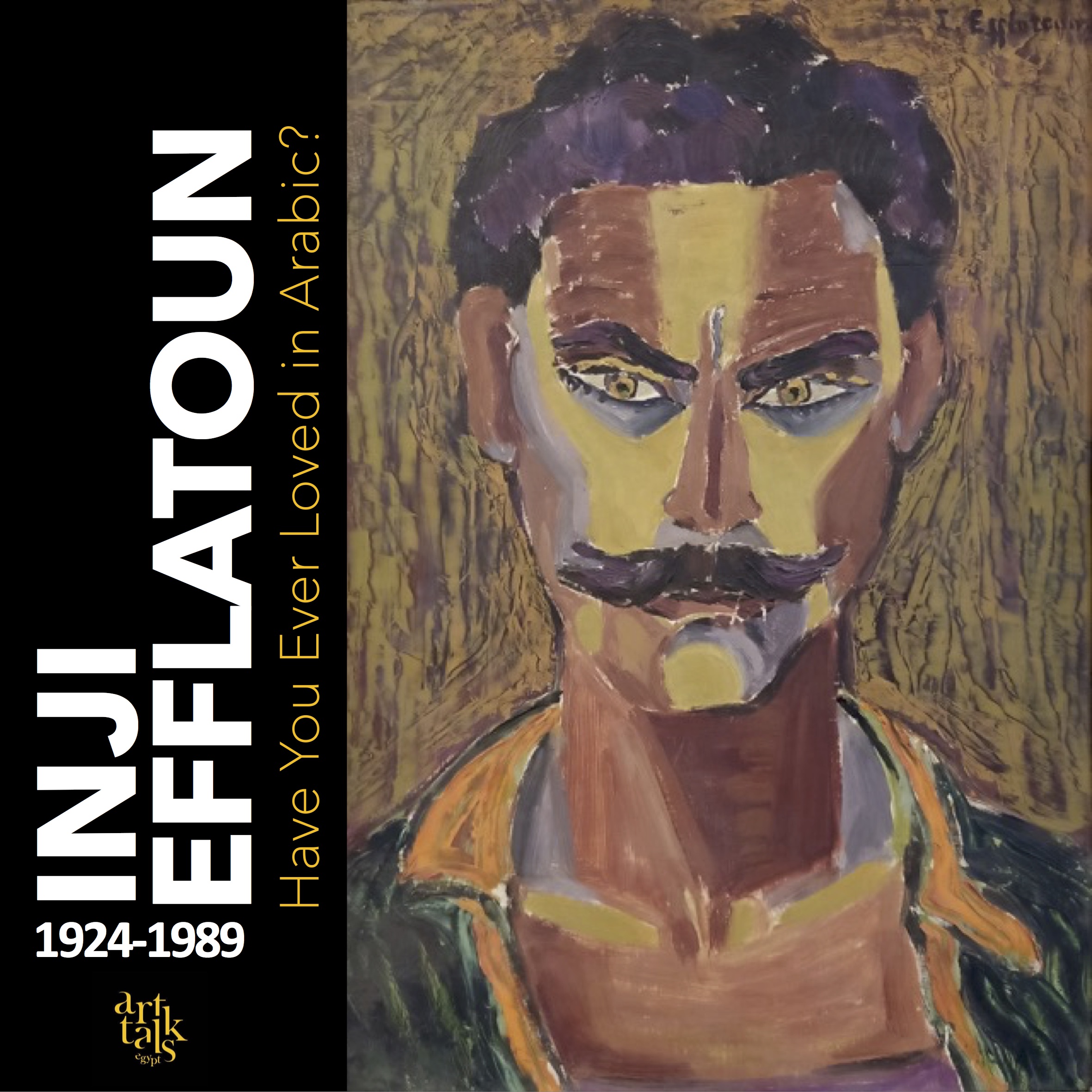
A painter, a political activist, a feminist, a prisoner, an author, a spokesperson, a wife, daughter, sister, and aunt, Inji Efflatoun was a multitude of personalities who succeeded in opening up more than one road. It was difficult then to know of which Inji to speak. We chose to begin our story with three important oil on wood portraits from the late 1950s that have not been exhibited in decades, and proceed with showcasing a series of oil paintings and works on paper from her last period dating 1970 to the 1980s. Combined, the exhibition is an homage to a Woman Apart.
Two self-portraits dated ca. 1959 contextualize the life of Efflatoun. Depicting herself dressed in a fellaha attire, Efflatoun provides us with a stirring snapshot of the times when she had no choice but to turn into a clandestine political activist hiding from the Egyptian authorities to pursue her fight for social justice. Produced before her imminent imprisonment, we felt it was important to begin at this juncture and remind the public of Efflatoun’s sacrifices for Egypt, women, and humanity at large. This was particularly pressing since we noticed that majority of the catalogues published during Efflatoun’s lifetime to present her individual exhibitions rarely mentioned the struggles that this multi-faceted pioneering woman has devoted her life to, for over half a century. Suffice to say that the catalogue published on the occasion of an exhibition held at Akhenaton Gallery a few months after her liberation from prison in 1964 has no reference whatsoever to Efflatoun’s five-year imprisonment. It is as though art was not to be linked with or tainted by politics. We strongly felt that we could not repeat such deliberate (or unintended) omission.
The third portrait presented as part of our introductory homage is titled Ibn al-Balad. A stunning depiction of the “true son of Egypt”, the painting offers two readings. The first is Efflatoun’s thematic representation of the so-called disadvantaged crowds who are often regarded as a misrepresentation of the right image of Egypt. Whereas in times of stability, Ibn al-Balad is looked down upon as a threat and a ticking bomb; in times of rebellion, he is regarded as the ally of political elites to fulfil a certain agenda. For Efflatoun, Ibn al-Balad is neither a threat nor an ally. He is Egypt. He is the true Son of the Land. The second reading of this portrait is the striking resemblance with Hamdi Aboul Ela, Efflatoun’s beloved husband and companion. Based on the physical description she provided of him in her memoirs, Aboul Ela epitomizes Ibn al-Balad.
In addition to these three portraits, the show presents a carefully hand-picked selection of works from the time when Efflatoun had risen to fame and established herself as the painter of “Ombres Blanches” or White Shadows, to borrow the title of her 1977 exhibition. Finally, we are presenting a series of rare archival documents, exhibition catalogues and personal photographs to be displayed for the first time. Sourced from our own gallery’s immense archive, as well as through Mr. Hassan Galal el-Dine, the son of Zohra Efflatoun, Inji’s half-sister, these documents represent tiny snippets of moments of fame and recognition. We take this opportunity to thank Mr. Hassan el-Dine, as well as Dr. Ashraf Reda, Adjunct Dean to the Faculty of Fine Arts in Cairo, for their help in the archive.
In honour of A Woman Apart, we celebrate Efflatoun’s multiple facets or rather, all of the Inji’s that ever existed and still exist, that make her the one and only Inji Efflatoun.